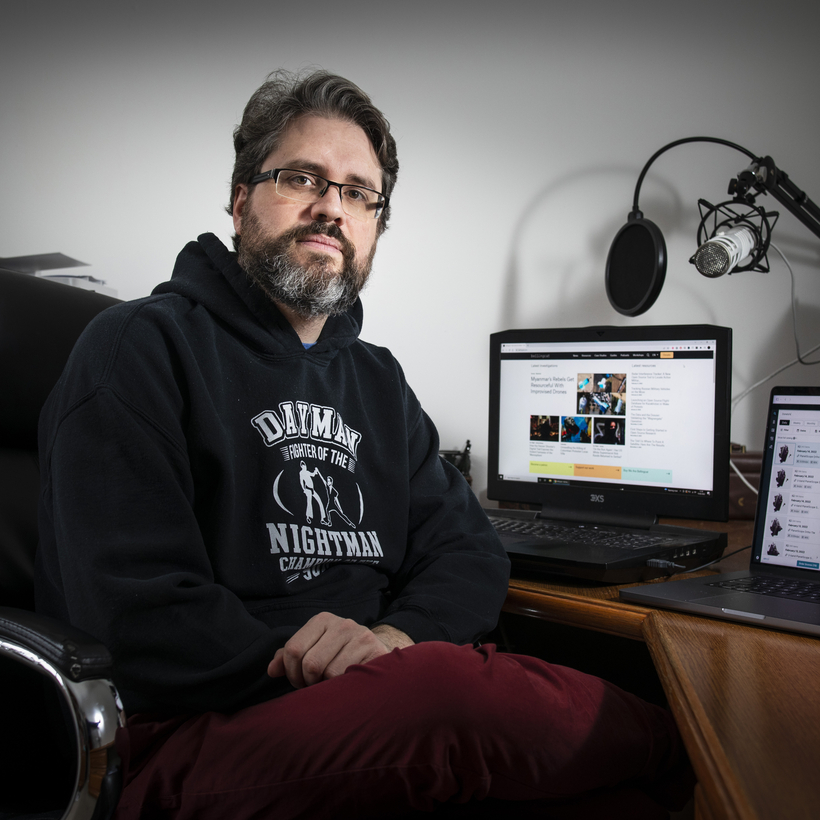Eliot Higgins taps on his laptop, peering at the screen. It is a few days before Russia’s invasion of Ukraine. We are in his sitting room at the end of a cul-de-sac near Leicester — but we’re looking at an area in eastern Ukraine. “Bloody clouds,” says the 43-year-old founder of the investigative journalism group Bellingcat, staring into a white swirl on the screen. “Clouds are the biggest enemy of satellite imagery.”
Russia beware: the world’s most celebrated Internet sleuth is watching. Armed with a bulging budget and new technical wizardry, he is logging growing evidence of war atrocities allegedly committed by Russian troops.

